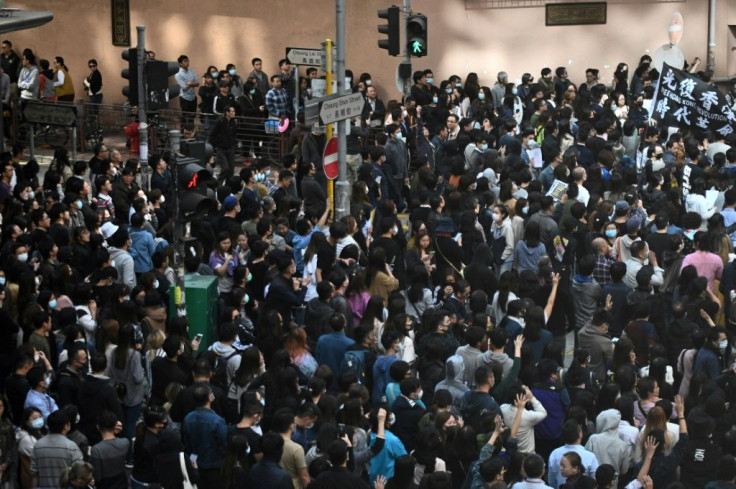Hong Kong Deports Indonesian Domestic Worker Who Reported On Pro-Democracy Protests

A 39-year-old Indonesian domestic worker, Yuli Riswati, was deported from Hong Kong on Monday following her September arrest for overstaying her visa. Her work visa had expired in July.
Aside from her domestic chores, Riswati covered Hong Kong’s protests as a citizen journalist for the not-for-profit Indonesian online news outlet, Migran Pos, that she launched in March. Her supporters say this landed her in the “crosshairs” of the Chinese controlled Immigration Department and is the real reason behind the arrest.
Yuli’s mistake was allowing her work visa to expire and open the door to her expulsion. An Immigration Department spokesperson said Hong Kong laws gave them the power to arrest, detain, prosecute and deport anyone for violating their conditions of stay. The regional coordinator of the International Domestic Workers’ Federation, Fish Ip Pui-yu, said the woman had forgotten to renew it in July.
Minor visa violations in any country are usually handled by paying a late fee or, in the case of a work visa, demanding a letter from the workers' employer. According to “other activists” in Hong Kong, the Immigration Department would always allow domestic workers to renew their passports if their employers wrote a supporting letter to the department even if the statements were submitted after the expiry. Riswati’s employer also had written such a letter.
Denying a late visa renewal even with a supporting letter might be a rare occurrence, but when Immigration officials came to her employer’s flat in September to arrest her, the denial elevated to “unheard of”, not just rare. Pui-yu said, “During my 20 years [as an activist], I have never heard of immigration officers arresting domestic workers at their employers’ flats for expiry of their visas.”
Riswati’s lawyer, Chau Hang-tung, agreed and said she had never heard of such an arrest but admitted that the immigration officers were legally allowed to do so. The case went to court in early November where prosecutors offered no evidence and withdrew the overstay charge.
According to Chau, when Riswati paid a visit to the Kowloon Bay immigration office later that day, she was sent to the Castle Peak Bay Immigration Center where she spent almost a month. Under pressure from the Immigration Department and facing some health concerns, Riswati agreed to withdraw the renewal application. She is now back in Indonesia.
Teresa Liu Tsui-lan, managing director of the Technic Employment Service Center, agreed that while arresting domestic workers at home is unheard of, she is of the opinion that there are other reasons for the deportation that have not been made public and not her role as a citizen journalist.
Last year, Riswati was awarded the Taiwan Literature Award for Migrants for her writing. Her topics, prior to the June unrest, were mainly about the activities of fellow Indonesian workers in Hong Kong. It will be interesting to see what her topics are for any future writings unfettered by immigration concerns.

© Copyright IBTimes 2024. All rights reserved.





















